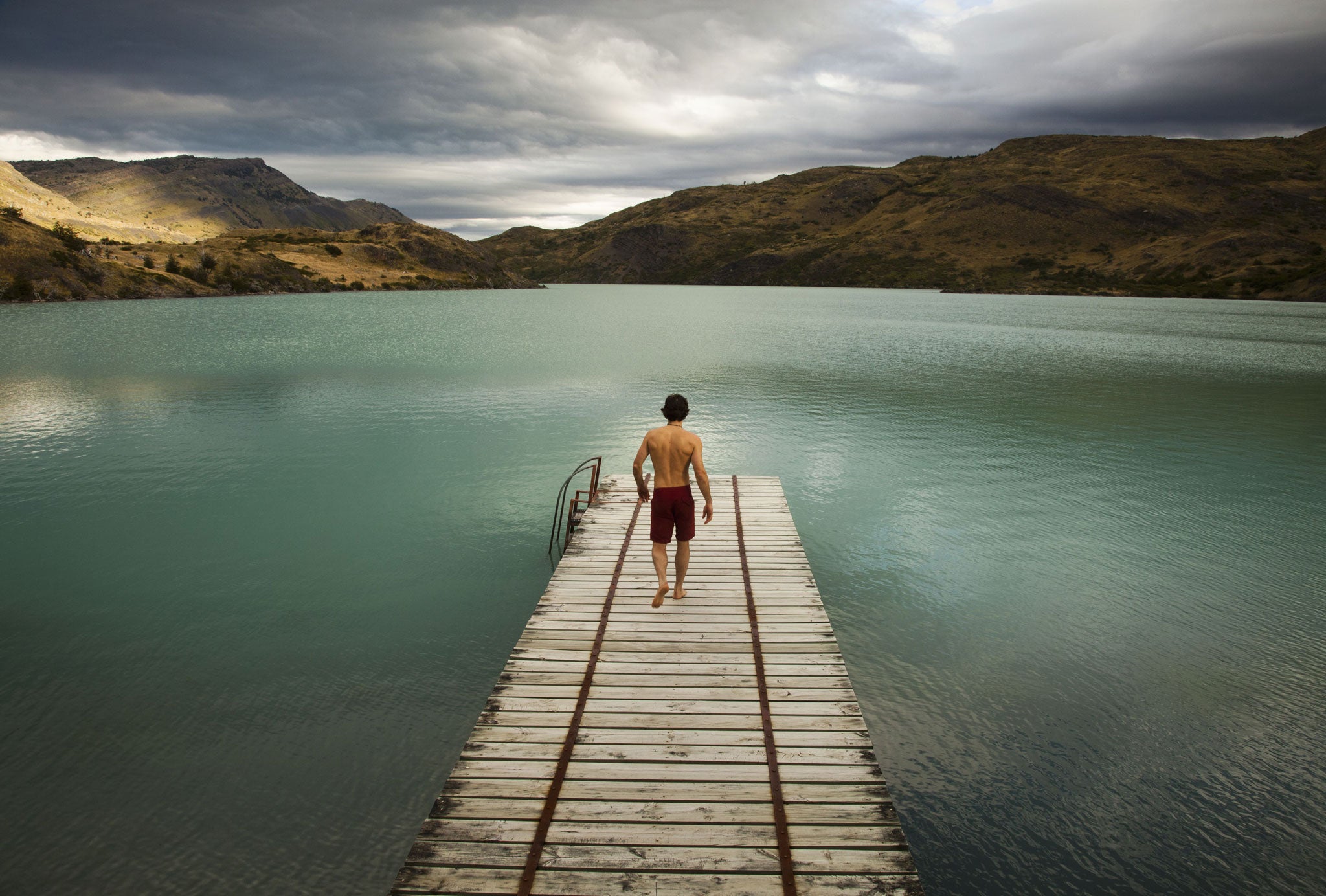This is , on the face of it, a nature book. A man-and-nature book to be precise. A paean to wild swimming, documenting Andrew Fusek Peters' love of seeking out water in the British countryside, and then taking a dip. And if it was nothing more than that, it would be a fine work. But it gains extra power from also being an account of depression.
It becomes clear early on that the "dip" of the title refers to the mental as well as the physical kind. Peters has suffered with depression. The serious, life-threatening kind. "When I descended into that valley," he writes, "I can say that death was as close as breath in my ear."
While in that "valley" he lost interest in most of the things he loved, chief among them swimming in the wild. So every time we witness another of Peters' adventures in the watery wild we are witnessing a part of his recovery. His love of nature, and the experience of outdoor all-weather swimming, becomes a kind of metaphor for that post-depressive feeling of diving back into life.
This is a poetic book. Not only is it littered with actual poetry (Gerard Manley Hopkins features heavily, and a poem by Peters himself – "And the River Loves Me" – comes at the start of the book, setting the tone), but the prose itself is the lyrical kind. The writing is very often beautiful, and it is clear that the author loves words as much as he loves water. Indeed, there are a few moments when words and water fuse together, such as at Nantoc Falls in Wales, where he takes a dip during a freezing January.
"The water beyond the campsite edge splays out, rushing, overblown, a song that speaks verse after verse of endless winter rains." He writes so evocatively of such scenes you are almost seduced by the idea of trekking through a forest in winter, stripping down and taking the plunge. But even Peters admits that swimming in freezing cold water can be a bit of a challenge. ("The shock is unspeakable.")
Yet he persists. Throughout the whole year. In rivers and lakes, besides waterfalls and weirs. Partly for the thrill and the sense of invigoration he gets out of the water itself, and partly for the way it makes him feel connected with nature. It comes as no surprise that Peters has "an empathic feeling for otters".
His drive for life will be recognisable to anyone who has had experience of mental illness, and felt that upswing after the fall, that this-time-I-won't-take-life-for-granted feeling. And because the writing is so lyrical, because it is full of metaphor, it doesn't really matter if the idea of swimming amid the cold wilderness appeals.
There is a thoroughly human story here. That of a man who, in his depression, had become petrified even of visiting his heated local swimming pool, becoming the man who can swim in a freezing bog pool in Shropshire in November.
Yet depression is never fully beaten, due to his mind's insistence that "however good it is now, these glory days of wild swimming, of laughter, of family… all this will be taken away."
This is the key to what is undeniably an eccentric kind of therapy: it takes the mind away from mortal fears, and channels it towards nature, and "the perfect now of its sensation". Life is here, the book seems to say, let's dive into it while we can.
Matt Haig's novel,'The Humans' , (Canongate) is out in paperback
Subscribe to Independent Premium to bookmark this article
Want to bookmark your favourite articles and stories to read or reference later? Start your Independent Premium subscription today.


Join our commenting forum
Join thought-provoking conversations, follow other Independent readers and see their replies